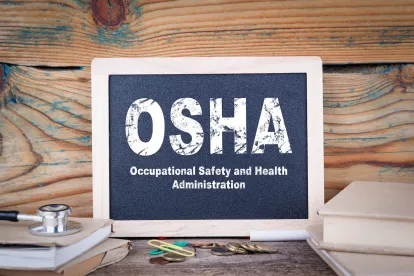On May 20, 2021, the Cal/OSHA Standards Board (“Board”) delayed a vote on proposed changes to the COVID-19 Emergency Temporary Standards (“ETS”). At that time, the Board claimed they would revise the ETS to address updated guidance from the Centers for Disease Control and Prevention (“CDC”) for fully vaccinated persons. However, the revised ETS passed by the Board late on June 3rd falls short of following all of the CDC’s newest guidance and takes a more restrictive approach than previously proposed revisions.
The amended ETS will be submitted to the Office of Administrative Law (“OAL”) and the OAL has 10 calendar days to approve, just in time for the reopening of California on June 15th. It is assumed the ETS will be approved by the OAL.
Here are the changes to the ETS that California employers should be aware of:
-
Physical distancing: The 6 feet physical distancing requirements will remain in place until July 31, 2021. However, the amended ETS adds the following exceptions to physical distancing:
-
An employee wearing a respirator if required by the employer and used in compliance with the Respiratory Protection Standard in Cal. Code. Regs., tit. 8, section 5144.
-
Locations at which all employees are fully vaccinated, except for employees who require a reasonable accommodation or exception to vaccination under federal or state law.
-
-
Face coverings: Employers are still required to provide face coverings and ensure face coverings are worn when indoors, when outdoors and less than 6 feet away from others, and where required by orders from the California Department of Public Health or local orders. However, the following exceptions apply:
-
When an employee is either alone in a room or when all persons in a room are fully vaccinated.
-
Employees who wear respirators as required by other sections.
-
Employees who are fully vaccinated when they are outdoors and do not have any COVID-19 symptoms.
-
Employers looking to take advantage of the exceptions for social distancing and face coverings will also have to have effective documentation showing affected employees are fully vaccinated as required by the ETS. This will create some additional compliance obligations with respect to medical records and the protection of employees’ private and confidential information.
-
Respirators for unvaccinated employees: Effective July 31, 2021, employers must provide filtering facepiece respirators (i.e., NIOSH-approved devices that are able to filter particulate matter, such as the N95s) to employees that are not vaccinated for voluntary
Employers should note that respirators are different from face coverings, in that respirators provide personal protection to the individual wearing the respirator. Face coverings, in contrast, are meant to provide source control. As a result of this requirement, employers will also need to comply with Title 8, Section 5144(c)(2), which has specific requirements for voluntary respirator use, such as providing certain information to users contained in Appendix D of Section 5144. Employers must similarly develop written procedures for employees to use respirators in the workplace that ensure employees’ use of respirators does not pose a hazard and that respirators are used in a correct manner.
-
Partitions: Partitions must continue to be used until July 31, 2021, to protect employees working indoors and at outdoor mega-events. One exception to this is to provide respirators for voluntary use in compliance with Section 5144(c)(2). After July 31, 2021, employers could remove partitions but would be required to reinstall them in the case of multiple COVID-19 infections or outbreaks in the workplace.
-
Exclusion: Fully vaccinated employees that test positive for COVID-19 (or are otherwise considered a COVID-19 case) must still be excluded from the workplace until the return to work requirements (same as the prior ETS) are met. However, fully vaccinated employees no longer need to be excluded from the workplace due to a close contact, so long as they do not develop symptoms.
-
Testing: Employers must continue to make COVID-19 testing available at no cost during paid time to all employees who have had a close contact except for those who are fully vaccinated before the close contact or certain individuals who have recovered from COVID-19.
California employers will need to carefully consider these new standards in developing their plans as the state moves toward reopening on June 15th.





 />i
/>i
